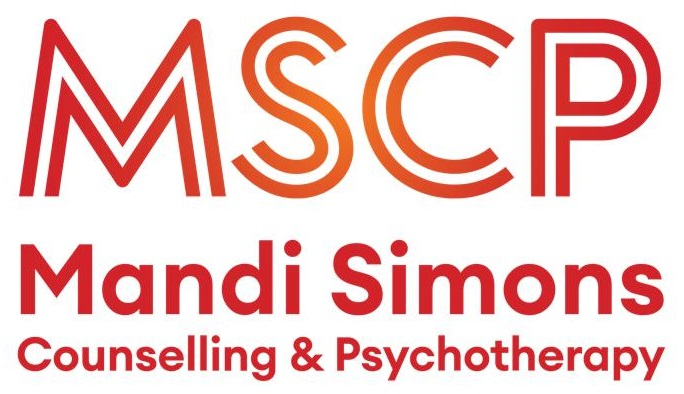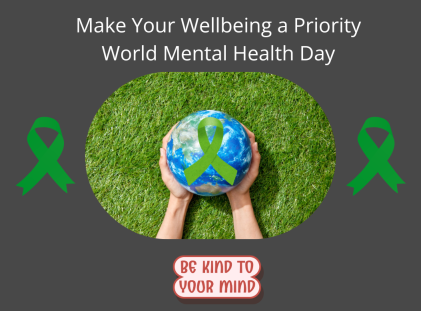Every year on 10th October, World Mental Health Day reminds us to pause and reflect on one of the most important and often overlooked aspects of our health: our mental health. Our mental health is intrinsically linked to our emotional and physical wellbeing.
October also marks Domestic Abuse Awareness Month, a time to shed light on an often hidden reality. For those experiencing difficult home environments or living with trauma, prioritising mental health can feel out of reach. This serves as a reminder that help and healing are possible.
Domestic abuse and mental health
Domestic abuse is not always visible. It can be physical, emotional, psychological or financial. Survivors often suffer with anxiety, depression, PTSD and hypervigilance. It’s no wonder that its impact on mental health is so profound.
Raising awareness means more than recognising the signs. It’s also about creating safe spaces where people can talk openly about what they're going through or have been through without fear of judgment, shame or ridicule. Many people who have been affected by it are worried they’ll be asked painful questions, such as “Why didn’t you just leave?” when the reality is far more complex.
If someone opens up to you about their situation, listening with empathy can make all the difference. Gently remind them they’re not alone, and that confidential help is available through services such as Refuge or the National Domestic Abuse Helpline.
Support services include: · Refuge – www.refuge.org.uk
· National Domestic Abuse Helpline (UK): 0808 2000 247 (24 hours)
Mental health affects us all
We all experience times when life feels overwhelming. Juggling family, work, relationships, homes, and financial pressures can be draining. This is especially true in our modern world, where expectations seem so high and social media would have us believe that others have got everything figured out. That can make us feel inferior and that we aren’t quite ‘good enough’, which impacts our confidence and self-worth.
These pressures can lead to anxiety, burnout, or depression. Such heavy and negative emotions can make you withdraw from friends and family, or you may feel like you don’t have the mental bandwidth to spend time doing the things that you love. You might be finding it hard to fall asleep or stay asleep, or perhaps you always feel ‘on high alert’.
These are often quiet signals that something inside you needs attention, not dismissal.
Many of us try to ignore these signs. We often convince ourselves that we’re managing fine under the circumstances, that others have it worse, or that what we feel isn’t ‘serious enough’ to deserve support.
It’s important to remember: mental health is not just the absence of illness. It’s about how we cope, connect, and care for ourselves and others. Seeking help isn’t a sign of weakness; it’s an act of courage and self-respect.
How to support your own mental health this October
Even if you’re not directly affected by abuse, World Mental Health Day is an important time to reflect on your own wellbeing and that of those around you.
You don’t have to be in crisis to need care.
Small, consistent steps can make a real difference:
· Check in with yourself: Notice how you’re feeling, both physically and emotionally. Talking to someone you trust can help you process thoughts before they build up and become harder to manage.
· Reach out, don’t retreat: Whether it’s coffee with a friend or a phone call to an understanding family member, being seen and heard helps us feel grounded, understood and less alone. Taking a break from social media and getting social in real life can make a real difference.
· Set boundaries: Protect your time and energy. It’s okay to say no or take a step back when you need rest or space.
· Get out in nature: The outdoors is a wonderful, free and easy way to boost your feel-good levels and lower feelings of stress and burnout. A walk will help clear your head, increase your endorphins and lower your cortisol levels, as well as help you sleep better.
· Seek professional help: Talking therapy provides a confidential space to explore your emotions and experiences. Whether you’ve been through something traumatic or are struggling with your mental health for a host of other reasons.
A message of hope
World Mental Health Day and Domestic Abuse Awareness Month share a vital message: none of us are immune to life’s challenges, and none of us should have to face them alone.
If you’re finding things difficult right now, please remember that your feelings are valid, and your wellbeing matters. Help is available for you.
Therapy can provide a safe, non-judgmental space to start releasing what feels heavy and find your way forward.
Look after your mental health well, and your mind and body will thank you. Book a consultation today to begin your process.

